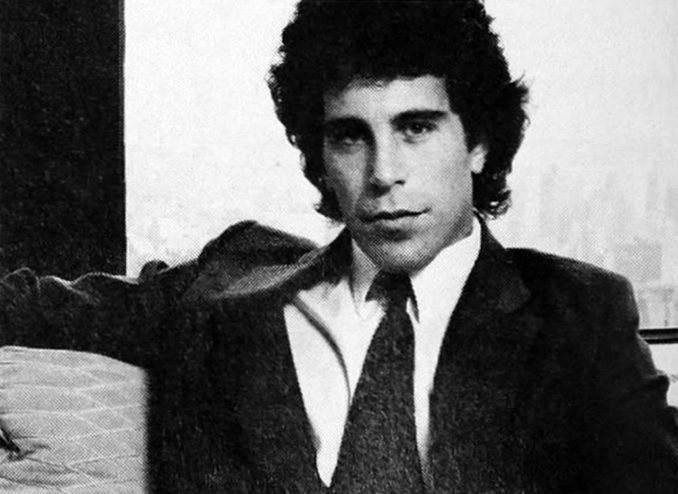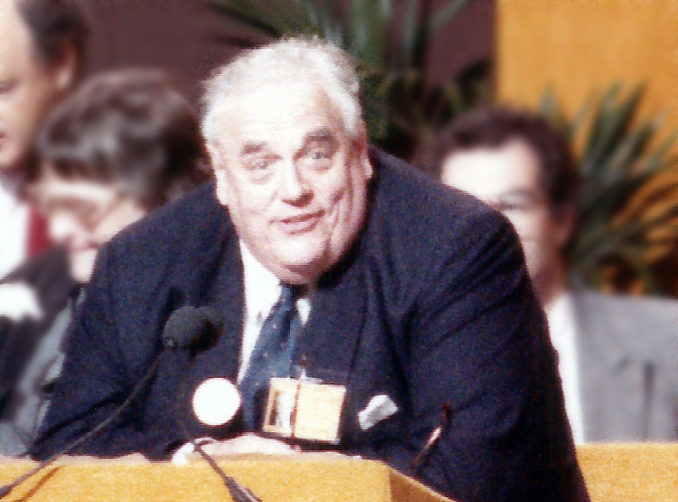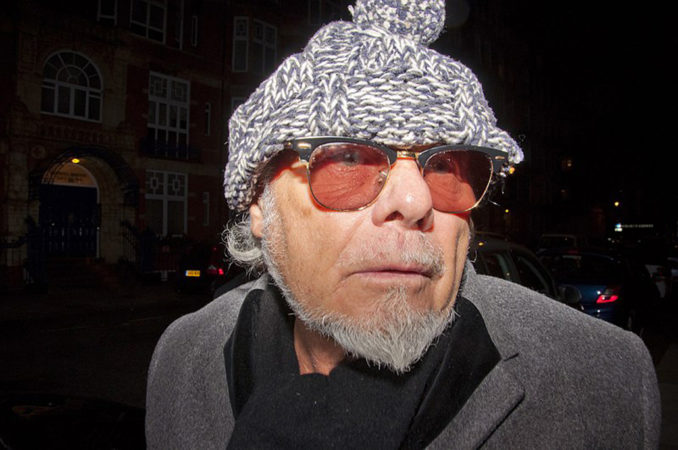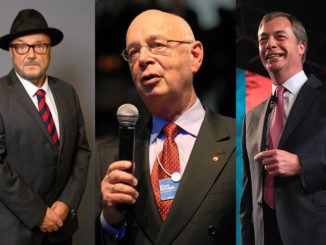
Deeply buried in the LGBTQ+ acronym is the letter ‘P’. So deeply buried is it, that it doesn’t actually appear to be there. But believe me, it is.
That invisible ‘P’ stands for ‘Paedophile’, and despite all desperate cover-up efforts, paedophiles have been in the news quite a bit in recent years. Whether it’s high profile media or public figures corrupting underage boys, or groups of men, usually Asian, targeting vulnerable young White girls, it just doesn’t seem like it’s a new thing any more.
And of course it isn’t. After all, our mothers warned us about accepting sweeties from strange men, and about getting into strangers’ cars.
And for anybody who still may not know, or understand, paedophiles are people who have a sexual interest in children, with many attempting to engage in sexual acts with them. They stalk their prey patiently, persistently, and mercilessly, until the perfect opportunity to strike arrives.
Children suffer terrible cruelty and pain at the hands of paedophiles, and most endure lifelong suffering and anguish as a result – the ones that survive such an encounter, and don’t disappear for ever, that is.
Most reasonable and decent people can’t even bear to think about what children might suffer, and would do anything they could to protect these vulnerable human beings.
The word paedophilia comes from the Greek παῖς, παιδός (paîs, paidós), meaning “child”, and φιλία (philía), “friendly love” or “friendship”, and it is generally accepted that it refers to the sexual exploitation and abuse of any child under the age of consent.
However, some dictionary definitions of paedophilia substitute the phrase “prepubescent children” for the word “children”. This might give the impression that adult sexual activity with any child that has begun his or her journey to sexual maturity is therefore acceptable, but it is in fact one of several terms used that categorise paedophiles according to the stage of sexual development of the child they target.
A CHILD’S JOURNEY TO SEXUAL MATURITY
Every adult has travelled this road, and it’s a confusing and sometimes difficult journey for many.
The average age for girls to start puberty is 11, and for boys it’s age 12, with the earliest accepted start ages being girls at 8, and boys at 9 (NHS data).
The process continues for several years, and was first summarised and codified by British paediatric endocrinologist James Mourilyan Tanner (1920 – 2010). He developed what is known today as the Tanner Scale.
He stated that there are five stages to puberty, with the main characteristics of each stage being:
Stage 1 – no noticeable changes, but the child’s brain and glands start to release hormones into the body.
Stage 2 – a boy’s pubic hair, and a girl’s breast ‘buds’ start to form.
Stage 3 – in girls, acne may appear, armpit hair forms, and there’s a spurt in growth height-wise. In boys, the voice starts to change, muscles get larger, and they begin to experience ‘wet dreams’.
Stage 4 – girls get their first period, while in boys, armpit hair begins to grow, and they get their chance to experience the delights of acne.
Stage 5 – in girls, the reproductive organs become fully developed, and their bodies reach the full adult female shape; while boys start to enjoy a lifetime of ever-growing facial hair, and their sexual organs reach adult size.
As is widely accepted today, the human brain, and a human being’s thinking and reasoning capabilities, aren’t fully mature until the early twenties, which goes to show that the legal definition of the age childhood ends, and adulthood begins (age 18 in the UK), is reasonably sensible, being a compromise between the age of sexual maturity, and the age at which the mind matures. It also affords the vulnerable a reasonable amount of protection – at least in theory – from adults with predatory instincts.
THE AGE OF CONSENT
Not to be confused with the age of majority (the age at which an individual is recognised as an adult in law, and assumes control over themselves, their actions, and decisions, and leaves the control of their parents or guardian), the age of consent is the age a young adult is deemed to be competent to consent to engage in sexual acts.
This age varies considerably across the world. The unrestricted age of consent is 18 in the United Kingdom and most of Europe (17 in Ireland, and 16 in Italy, Belarus, and Kosovo), while it’s as low as 12 for females in Sudan, and 13 for both sexes in Niger.
The age is as high as 21 in Bahrain (for unmarried persons), while in Afghanistan, the onset of puberty is considered to be the right age.
These ages can be lower in some countries where the older person in a sexual relationship is not deemed to be in a position of trust or authority over the younger person, or is not recognised to be abusing the inexperience of the younger one.
In the United Kingdom, this age is 16 – the age commonly believed to be the ‘unrestricted’ age of consent.
In other words, a young person in the United Kingdom can engage in sexual activity with an older person from the age of eighteen without restriction, but there is some protection for vulnerable children between the ages of 16-18 from exploitation by those in a position of trust or authority.
Sexual activity at an even younger age is allowed in some countries and states when the age difference between a younger partner and the older person does not exceed a specified amount:
In US states, the lowest possible age of consent is 13 (in several states), while in some Mexican states it’s 12, and it’s also 12 in Canada, Indonesia, South Africa, Hungary and Uruguay.
It’s 12 for boys, and 14 for girls in Papua New Guinea, but it is legal to engage in sexual activity with a girl aged as young as 12 if the older person “believed, on reasonable grounds” that the girl involved was aged 16 or over.

William Starkey, CC BY-SA 2.0, via Wikimedia Commons
PSYCHOPATHOLOGY OF A PAEDOPHILE
Paedophilia is generally accepted to refer to any form of sexual abuse by an adult of individuals under the age of 18, but as previously mentioned, some definitions do refer to prebubescent children only as being the target of paedophiles.
This is because there are other, lesser known categories of child sexual abuse, namely:
Infantophilia (sometimes called nepiophilia) – a sexual fixation on children less than 5 years old, including toddlers and infants.
Hebephilia – a sexual preference for boys or girls who are between the ages of 11 and 14 – i.e. early to mid-stage pubescent children (Tanner stages 2 to 3 of physical development).
Ephebophilia – a sexual preference for mid – late stage adolescents, particularly girls, typically ages 15 and 16 – i.e. late puberty, and post pubescent children (Tanner stages 4 to 5 of physical development).
It gets murkier, because while some child sex abusers are exclusively attracted to children, and may be attracted to one, or both sexes, others are attracted to both children and adults,.It goes without saying that most abusers are men, because the crime is extremely rare in women.
Traditionally cast as a psychosexual disorder, in 2013 the American Psychiatric Association published a new edition of the Diagnostic and Statistical Manual of Mental Disorders (DSM), a standard resource for mental health professionals, widely used in the United States and throughout the world.
This manual contained a new, and slightly different definition of Paedophilia as compared with earlier editions, as it now distinguished between paraphilias (sexual deviations) and paraphilic disorders.
In other words, the experts recognised that the interest itself should no longer be considered a mental illness, but any behavioural expression of it, (i.e. any attempt at sexual contact with children) would be sufficient to warrant a diagnosis of paedophilic disorder, although this interest and behaviour would have to be present for at least six months for clinical diagnosis.
Paedophile behaviour itself has long been thought to be associated with childhood sexual abuse, or neglect suffered during childhood by an adult perpetrator, while recent research has looked at alterations in brain structure and function caused by developmental problems occurring pre-birth, or in early childhood. However, the underlying causes remain unclear.
Some people might say that characterising this behaviour as a mental illness, and suggesting that sufferers are somehow ‘not responsible’ for their actions, is a bit of an excuse, and would argue that most offenders know exactly what they’re doing, and know it’s completely wrong – making it more of a ‘hobby’ than an illness.
GROOMING
While a significant number of instances of child abuse can be described as opportunistic, the process of grooming, by which an abuser draws a child into a sexual relationship, and maintains it through secrecy, is very common.
Child sex predators are nothing if not devious and cunning, and they have many ways to get involved with a child. It may be through a family connection, or via a chance meeting, or through a shared interest. .
That interest might be a club or activity of some kind, or the abuser might have a jolly little fluffy pet (more likely to be a dog than a cat) that a child might be delighted to play with on a visit, or perhaps a love of sport – football, for example.
RAACE (Race Against Abuse of Children Everywhere), an American non-profit pressure group, describes the grooming process thus:
A non-sexual relationship is established.
The child molester gains the trust of victims and their families, then seeks time alone with the child.
Sexualisation of the relationship takes place gradually.
The child’s cooperation & silence are maintained by various forms of coercion.
The child accepts increased sexual demands with an increasing sense of betrayal and guilt.
PAEDOPHILIA – A PERSONAL PERSPECTIVE
In common with many of the parents of my generation, Mum always warned me NEVER to accept sweeties from strangers, or to get into a stranger’s car, however nice they might appear. And of course as a little boy, I always had her words in the back of my mind.
I was blessed, if that’s the right word, with a somewhat angelic countenance as a child and teenager, and because part of the thrill for paedophiles is presumably the sexual pleasure derived from defiling the body, and bringing the innocence and purity of childhood to a premature end, I suppose I was a rather obvious target for attention.
Sure enough, in my early teens, I became the target of a groomer – a paedophile, or more accurately a hebephile in my case.
On our family’s very first holiday abroad – a trip to Switzerland by overnight sleeper train, an elderly man struck up a conversation with me as I was leaning out of the train window, marvelling at the central European landscape, and thinking how wonderful it was to be in a foreign country for the first time.
We had a brief conversation, and he soon found out what I liked. In my case, I was ‘hooked’ by footballing interest. He lived in Coventry and supported Coventry City, and being a North Londoner, I was an Arsenal supporter.
We chatted a bit, he treated me like a grown up, and told me about several other boys he knew, and all the lovely trips he took them on – sometimes to football matches – and all the money he gave them.
I expect I told him that I used to go to watch all Arsenal’s home games, but we didn’t really go to matches any more. As I recall, he said he’d take me to Highbury the next time Coventry were the visiting team. I was persuaded to reveal my address, and suspected nothing.
After the holiday, I began to receive letters from him on pretty much a weekly basis, and there was always a banknote of some denomination enclosed. The money and attention seemed quite nice.
Then they stopped for a bit, and I wondered if I’d said the wrong thing in one of my replies, so I was quite pleased when another letter eventually arrived. Not only more money, but this time an offer to take me to Highbury on a forthcoming Saturday, because Coventry City were Arsenal’s opponents. I’d have to reply immediately, because there was no time to lose.
Fortunately Mum had been keeping an eye on these letters as they popped through the letterbox, and no doubt had been reading them while I was at school. She stepped in at this point, put her foot down, and said there was to be no more contact with this man. Dad wrote a stern letter to him, and I never heard from him again.
Looking back at this incident, it was a close call. He really was a wrinkly, quite repulsive, ugly old man – but I’d always been taught to be nice to old people, and to respect my elders.
I don’t mind revealing this, because I was one of the few who had a lucky escape – I never became a victim, but my story, as unexceptional and unspectacular as it fortunately is, might help a youngster, somewhere, if they were ever to stumble across it.
In some strange sort of way, that experience was a help to me in my late teens and early adult life, because it taught me to be aware of sexual predators of the homosexual variety.
A couple of years later, one of my English teachers offered to give me extra tuition at his home to help with my ‘O’ levels. He was a great, and inspiring teacher, but a tortured soul. My few afternoon sessions with him were actually quite helpful, and I’d learned how to give good ‘hands off’ signals by then.
By the time I was officially an adult, and went to university, I knew what the score was. A couple of the lecturers in my department were obviously confirmed bachelors. I felt the vibes again, but it never turned into any kind of problem. I was definitely one of the lucky ones.
Some twenty years later, I paid a visit to a young woman who was a former flatmate, after she had moved somewhere else. The visit didn’t go quite like I’d expected, because she dropped a bombshell.
Quite out of the blue, she told me that her older brother had sexually abused her for several years when she was aged about 8 to 13. He made her perform various sexual acts, and she was sworn to silence, and threatened with serious ‘consequences’ if she dared to tell their parents.
She said the abuse came to a sudden end one day when he found a girlfriend, and life carried on as if nothing had ever happened.
Fortunately, she went into very little detail, but that night I couldn’t sleep, my mind racing with the horror of what she’d told me, and I remained troubled by her story for a long time afterwards.
I didn’t doubt her, because I had always thought there was some kind of emotional ‘block’ there, and what she revealed went some way to explaining why her chosen career in life was to work with troubled and disturbed children.
PAEDOPHILIA TODAY
Plenty of ‘ordinary Joe’ paedophiles make the news these days, and there have been several unsavoury stories recently about the criminal, and near-criminal activities of high-profile British media figures, while the extraordinary and largely unexposed story of convicted paedophile, sex trafficker, and controller of under-age prostitutes – Jeffrey Epstein – still lurks in the background.

Stephen Ogilvy, Public domain, via Wikimedia Commons
But to date, the famous and powerful people that were allegedly associated with Epstein, or visited his notorious paedophile party island, have remained untouched. With the exception of Prince Andrew, of course.
One of the perks of fame, wealth and high office is sometimes said to be the opportunity to have sex with children – and to get lots of it.
This may or may not be true. It’s certainly helpful to be a citizen above suspicion – a President, a top TV presenter, a children’s ‘favourite’, a pop pundit, a respected church man, or whatever – if you want to have the best chance of getting away with it
It’s also widely accepted that politicians and suchlike can be controlled and owned – not only by direct payments, or payments in kind, but also by blackmail, and the fear that horrendous crimes they have committed might at some time be revealed to the world.
Ensnared by a one-off indiscretion, a momentary lapse in concentration, or a silly drunken faux pas. Once the deed is done and the photos are in the can, most of their freedom of action is gone.
In the United Kingdom, The Independent Inquiry into Child Sexual Abuse (IICSA) was set up following revelations about high-profile BBC personality Jimmy Savile, who had recently been revealed to have been a prolific child sexual abuser, who had accessed and abused children in hospitals, schools and other institutions over a long period of time.
The enquiry worked from 2014 to 2022, and produced a number of reports about public bodies and institutions, and their failures to protect children from sexual abuse.
Bodies that were investigated included Lambeth, Nottinghamshire and Rochdale councils, and the Anglican and Roman Catholic Churches. Sexual abuse of children in institutions such as residential schools and custodial institutions was also investigated, as was abuse via the internet by organised networks.
There was also some investigation into whether there was an established Westminster paedophile ring which had been covered up for years.
THE VICTIMS
There are plenty of statistics about paedophiles and their victims. Here are some, which come from various sources:
One in 9 girls, and 1 in 20 boys under the age of 18 experience sexual abuse or assault.
(The Advocacy Centre in Tompkins County, New York State, gives figures for their county that are three times higher: 1 in 3 girls, and 1 in 7 boys are sexually abused by age 18).
82% of all victims under 18 are female.
Females ages 16-19 are 4 times more likely than the general population to be victims of rape, attempted rape, or sexual assault.
Only 1 in 10 children who are sexually abused ever tell anyone.
About 90% of children who are victims of abuse know their abuser.
About 60% of children who are sexually abused are abused by the people the family trusts.
Most adolescent sex offenders are not sexual predators, and will not go on to become adult offenders.
70% of child sexual offenders have between one and 9 victims, while 20% have 10 to 40 victims.
As many as 40% of children who are sexually abused are abused by older, or more powerful children.
Males make up between 80% and 90% of all sex offenders.
Children with disabilities are almost three times more likely to suffer sexual assault.
Child abuse victims can suffer for the rest of their lives, and victims are:
About 4 times more likely to become drug abusers.
About 4 times more likely to experience PTSD as adults.
About 3 times more likely to experience a major depressive episode as adults.
Statistics also show that:
Child molesters rarely get caught, and most continue to abuse children if they are not reported and stopped.
An average serial child molester may have as many as 400 victims in a lifetime.

CyrilSmith.jpg: Rodhullandemuderivative work: Ukexpat, CC BY 3.0, via Wikimedia Commons
TREATMENTS FOR PAEDOPHILIA
Can paedophiles be reformed? If you believe it’s not possible, then the only totally effective protection for children from such people would be to permanently remove them from society. But such a solution is simply not allowable in a modern permissive Western society.
In some countries the death penalty operates for sexual offences, and in cases with irrefutable proof of a horrendous paedophile murder, who’s to say that capital punishment isn’t deserved?
About a dozen countries have the death penalty for raping minors, and for other serious sexual offences, and they are mostly Islamic countries. They include Bangladesh, China, Kuwait, Qatar, Sudan, Tajikistan, Tunisia and UAE.
Afghanistan: convicted rapists are either shot in the head or hanged.
China: rapists are sentenced to death, or sometimes to castration.
Egypt: sex offenders are publicly hanged.
Iran: rapists are either publicly shot or hanged from cranes.
Saudi Arabia: sex offenders are beheaded or publicly executed.
United Arab Emirates: the punishment for rape is death, carried out by firing squad, hanging, or stoning.
In more ‘tolerant’ countries, individuals who act on their urges and commit sexual offences against children can be diagnosed with paedophilic disorder, and will be expected to participate in treatment programmes.
These programmes involve both cognitive and behavioural therapies, and are aimed at strengthening an affected individual’s ability to control their urges, rather than to eliminate the urges altogether. The extent to which such programmes are successful, however, is uncertain.
Chemical castration is used for some individuals to reduce libido and sexual activity. Anaphrodisiac drugs, or more specifically antiandrogenic drugs are used in an effort to stop them reoffending. Medications such as cyproterone that suppress the activity of testosterone in men can be effective in reducing aggressive behaviour and sex drive.
Medroxyprogesterone is another drug sometimes used, and there are several others, including estrogens.
THE SEXUALISATION OF CHILDREN
Few would argue against children learning about procreative sex, and the emotional side of relationships – at some stage in their development. Whether from their parents, or at school.
However, many schools today seem to take this teaching role far too seriously, and push all kinds of information and material about sexual biology, and fringe and minority sexual activities onto children at increasingly younger ages.
Lessons on the mechanics and even desirability of certain sexual practices, delivered in such detail that even some adults would blush, and which include encouragement to little children to start indulging in some of these activities, seem totally inappropriate to many people.
It is argued that children, even the littlest, have a ‘human right’ to know about such things, and that such knowledge might help the small minority who have, or may later develop attraction to their own sex, to feel more comfortable about themselves.
That may be so, but another effect is to embed sexual ideas and concepts in the minds of children, making them more amenable and available to those who would prey on them, rather than letting them develop, explore, and experience their sexuality at their own pace, and in their own time.
Evidence that wall to wall LGBTQ propaganda, and premature sexual ‘education’ is having a profound effect on the thinking of children continues to grow, with surveys showing a worryingly large proportion of children now declare a sexual preference for their own sex, or believe they are in the wrong sex altogether.
THE PROMOTION OF MINORITY SEXUAL INTERESTS
There has been pressure for some decades to effectively legalise paedophilia by lowering, or abolishing the age of consent, on the basis that sex between adults and children is perfectly acceptable if a child is ‘willing’.
In the UK, The Paedophile Information Exchange (PIE) was a pro-paedophile activist group, which was at one time affiliated with the NCCL (The National Council for Civil Liberties – now Liberty). Harriet Harman and Patricia Hewitt, who later became high profile figures in the Labour Party, were members of the NCCL, and became involved with the movement.
The group was founded in October 1974, five years after the Gay Liberation Front was established, and one year after the founding of the Campaign for Homosexual Equality.
It campaigned for the abolition of the age of consent, and also offered advice to paedophiles who wanted it, and provided a means for paedophiles to contact each other.
A survey of group members revealed that they were most attracted to girls aged 8–11, and to boys aged 11–15.
PIE received some government funding from the Home Office, but once the group and its activities became widely known, there were public protests, the police became involved, and several organisers and members were prosecuted. The group disbanded in 1984.

Andy Thornley from London, UK, CC BY 2.0, via Wikimedia Commons
THE ‘FUTURE’ FOR PAEDOPHILIA
Sexual attacks by abusers on children often involve the threat, or the actual use of force and violence, and can sometimes be fatal. There are lifelong consequences for victims that survive such crimes.
I have sometimes heard the opinion expressed, invariably by a woman, that a paedophile or child killer should be handed over to ‘the women’ to be dealt with.
But in today’s ‘progressive’ and ‘permissive’ climate, the direction of travel seems to be towards normalising exotic and non-mainstream types of sexuality, and even towards the portrayal of the perpetrators of sexual crimes as some kind of victim themselves.
The promotion and glorification of ‘deviant’ sexuality has become increasingly common in the modern era, with whole months now devoted to celebrating such activities. Many big corporations and once-respected State institutions play leading roles, and parents take their children to watch ‘Pride’ parades and suchlike, as they seek to expose them to what they consider to be the ‘adult’ world.
Once upon a time the police would have arrested people for public displays of lewdness, nudity, and indecent exposure. Now they don rainbow uniforms, cheer on the parades, join in, and twerk and cross-dress in public too.
The LGBTQ+ acronym covers a number of activities once considered to be sins. The letter ‘P’ is surely one of the components, even if it’s a hidden one.
The age of consent may one day be abolished, which would effectively legalise paedophilia, but there will surely always be a sizeable number of people who hold that anyone who interferes with the mind or body of a child is a criminal, and should suffer the severest possible consequences for their crimes.
© NeverUpToTheJob 2023



